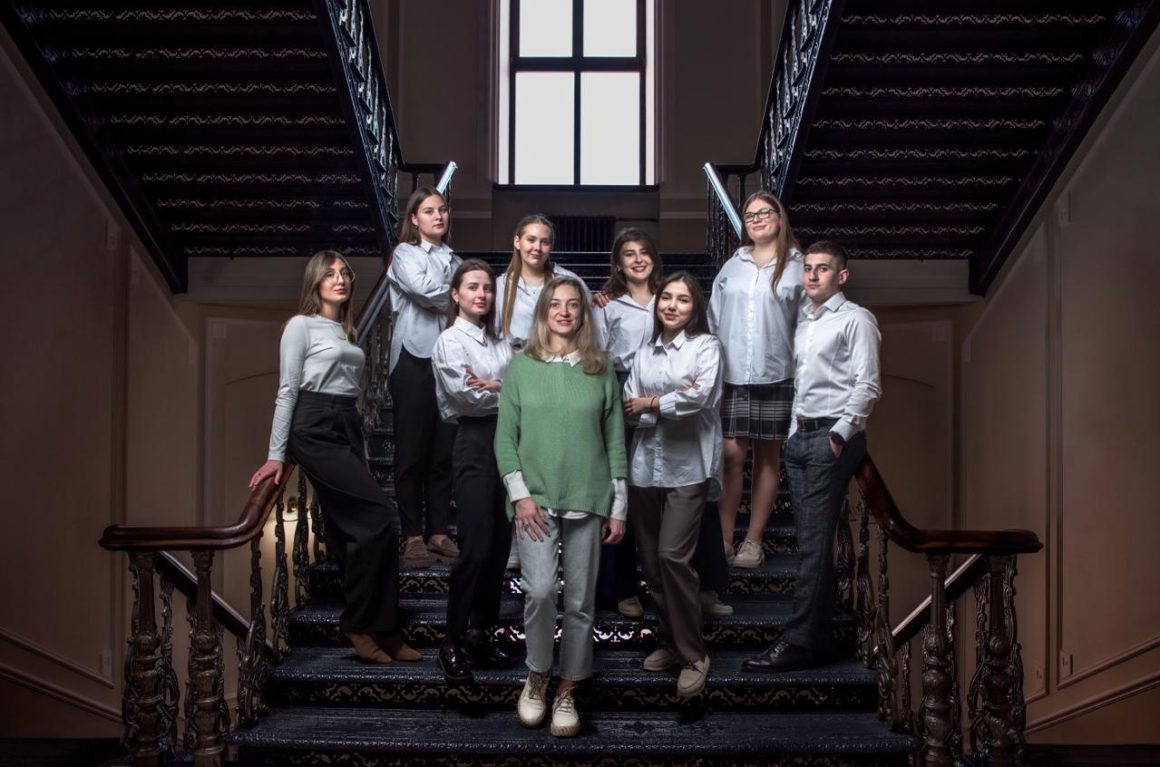Do you want to become an ambassador of the Competence Center and hone your soft skills under the guidance of professionals?This is your chance on the path to success!You will be at the very center of career events and competency center projects!
Competence Center

Head of the Competence Center of the Federal State Budgetary Educational Institution of Higher Education Kuban State Medical University of the Ministry of Health of Russia Tatyana Evgenievna Onbysh +79184770453 onbishte@ksma.ru
What is a Competence Center?
The competency center is a platform where students first undergo a diagnosis of their universal competencies (“soft skills”), and then work on them as part of a trajectory of self-realization.The project is being implemented on behalf of the President of the Russian Federation Vladimir Putin, and the initiator is the presidential platform “Russia - the Land of Opportunities” with the support of the Ministry of Science and Higher Education of the Russian Federation.The key task of the Center is systematic work to assess and develop trans-professional (including managerial and business) competencies among students.For this purpose, the Center has introduced special diagnostic and assessment tools, educational programs and modules for developing competencies.

“The work of the Competence Center will guide you and help you become high professionals in your field.Students will have the opportunity to gain personal development skills during educational programs and trainings: communication, leadership, strategic thinking.The formation of supra-professional competencies will allow you to build a career not only within medical practice, but also in related industries,” says Sergei Nikolaevich Alekseenko, rector of Kuban State Medical University
What competencies are we studying?
At the Competence Center, each student can undergo diagnostic testing on 12 supra-professional competencies.Over-professional competencies are universal business and managerial qualities of an individual that allow them to effectively and/or best perform assigned tasks and achieve success.Source: Komissarov A. G., Stepashkina E. A., Soboleva O. B., Guzhelya D. Yu., Seleznev P. S. Methodology for assessing supra-professional competencies in Russian educational organizations.Humanities.Bulletin of the Financial University.2022;12(6):53-62.doi: 10.26794/2226-7867-2022-12-6-53-62
Analysis of information and development of solutions.Quickly analyzes and works correctly with various types of information, establishes relationships between disparate data.Makes informed decisions based on collected data, analyzes risks and potential limitations, and considers possible alternative courses of action.When necessary, offers unpopular solutions.Result-oriented.Clearly represents the required result, takes responsibility for achieving the set goal, and initiates the necessary actions.Sets complex/ambitious tasks for himself and gives his own assessment of completed tasks.Partnership/collaboration.Interacts correctly with others, builds cooperative relationships, identifies and takes into account the needs and interests of others, proposes mutually beneficial solutions and works to jointly develop ideas/projects to achieve a common goal.Planning and organization.Draws up a comprehensive action plan to implement tasks.Organizes the company’s activities, predicts possible development options, sets priorities, evaluates resources (human, time, financial, etc.), determines deadlines for completing work and control measures.Following rules and procedures.Acts in accordance with existing standards, regulations, procedures and policies.Stress resistance.Maintains productivity in difficult situations.Self-development.Strives to constantly improve his professionalism, actively works to develop his professional and behavioral skills.Leadership.Takes responsibility for the performance of others, motivates people and coordinates their work to achieve goals.He is the leader of a group, department, company and can influence the behavior of employees and colleagues.Communication literacy.Knows cultural norms of communication, formulates his thoughts clearly and structuredly, and takes into account the characteristics of his interlocutors.Emotional intelligence.Recognizes own emotions and the emotions of other people, acts taking into account the individual characteristics of others.Passive vocabulary.Passive vocabulary is words that a person understands, recognizes when reading or hearing, but does not actively use in spontaneous speech.


